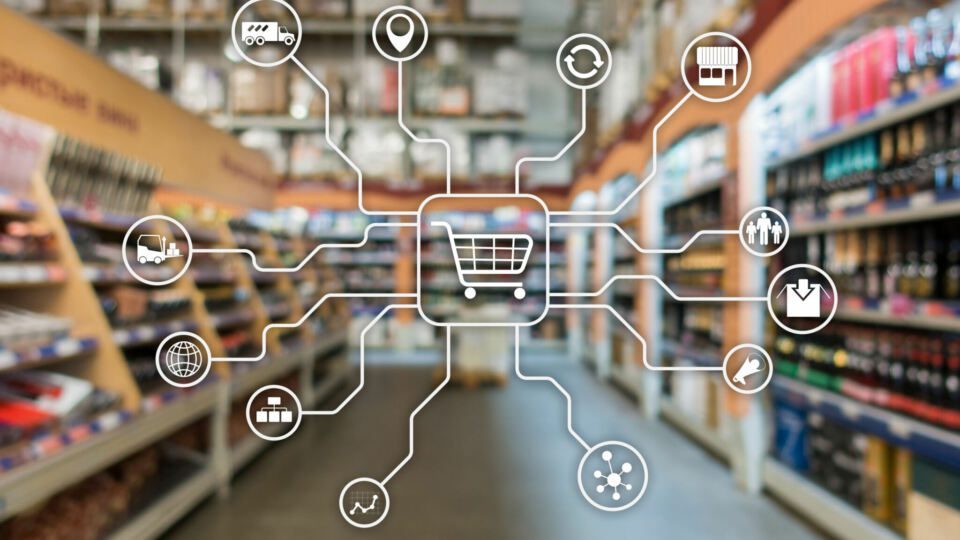As consumers have turned to more sources to shop, retailers have diversified their commerce and marketing strategies. In fact, Retail TouchPoints has seen the number of channels used to conduct business grow year after year in its annual Omnichannel and Fulfillment Benchmark Survey.
The latest report, which was released in December 2021, found that not only are retailers selling through branded ecommerce sites (76%) and stores (65%), they also are using other channels including social commerce (43%), mobile websites/apps (36%) and marketplaces (35%). Digital was undoubtedly a big source of growth for the retailer respondents: Company website revenues increased somewhat or significantly for 70%. Mobile channels generated significant increases for 30% of respondents, and ecommerce marketplaces made significant revenue gains for 27%.
Although some dynamics of the commerce landscape have changed, largely due to consumers venturing more eagerly back to stores following COVID-19, the survey findings paint an intriguing picture of how retailers’ omnichannel strategy will need to evolve to drive growth in 2022 and beyond.
Prediction 1: Retailers will continue to balance customer acquisition and retention
In 2021, retailers shaped their omnichannel strategies around two key issues: customer acquisition (63%) and customer retention (58%). Over the past year, however, we’ve seen focus shift more towards retention, especially as brands and retailers try to manage customer acquisition costs and rely less on big advertising campaigns to bring in new business.
While marketing and brand teams undoubtedly need to acquire new customers in order to fill their business pipelines, they will primarily focus on performance marketing tactics that help them reach consumers in a highly targeted way. At the same time, they will build out more robust retention toolkits that represent the diverse behaviors of consumers.
Our respondents largely embraced methods that support one-to-one communication between consumers and associates: phone/texting features with store associates (56%), virtual styling appointments (34%) and virtual events (30%). With social commerce becoming a hotter topic in the West, we’ll likely see a more diverse range of brands and retailers test these methods and attempt to scale them via livestreaming.
Advertisement
Prediction 2: Diversification of fulfillment services will be key to omnichannel success
No two customers are the same, which means everyone has different delivery and fulfillment expectations. For some individuals, their behaviors and preferences will differ based on a unique situation or point in time. To accommodate these different scenarios, retailers need to build diverse fulfillment networks that include both internal infrastructure and third-party partners.
Many respondents to our 2021 survey (61%) noted that they were investing further in their fulfillment ecosystem and that having multiple ordering and delivery options was critical to their omnichannel brand strategy. This won’t change anytime soon, as consumers have come to expect the ease and flexibility that comes with different fulfillment options. Instead, retailers will focus on honing their investments and ensuring the right mix of internal capabilities and trusted solution providers.
One key area to watch is rapid delivery or quick commerce. While this market exploded with new providers — and lots of VC funding to boot — it has seen its fair share of volatility of late. Quick commerce isn’t just complex and labor-intensive; it’s expensive too.
As retailers weigh potential partners, they’ll need to measure the risks and rewards of investing in new delivery offerings, and whether consumers truly want them.
Prediction 3: Automation will help retailers tackle workforce challenges
The store has become a central hub for omnichannel fulfillment. In fact, 60% of retailers use active brick-and-mortar stores as the final location where they store inventory prior to delivery. The same percentage of respondents (60%) say they assign store associates to pick products and complete tasks related to order prep — and another 18% plan to do so by the end of the year.
But the reality is retailers can no longer rely solely on their associates to complete these tasks, especially as they navigate extreme labor shortages. In the wake of the “Great Resignation” or the “Great Rethink,” retailers need to ensure that they’re creating an environment that positions employees for success. That means empowering them with tools, technology and enough time to do their jobs well.
Automation will help individual stores better allocate their resources and ensure that employees can focus on serving customers and completing tasks that require extra attention to detail. The question for retailers, however, is what approach is right for them. While some companies have successfully rolled out robotics, others are focusing on automated task management and prioritization tools.
More retailers are going omnichannel in order to maximize growth. However, every brand’s path and approach to omnichannel is different. The 2022 installment of this survey will launch soon, so it will be interesting to see how omnichannel priorities and investments have changed. In the meantime, though, be sure to download the 2021 report and dig deeper into the latest findings!
















